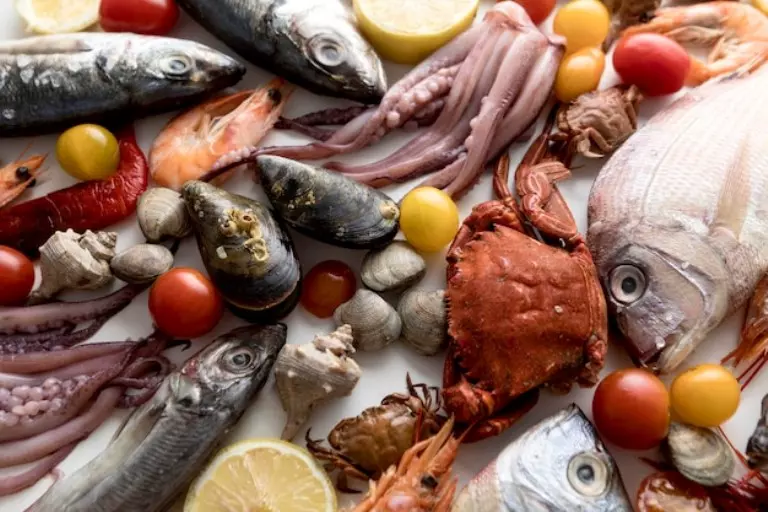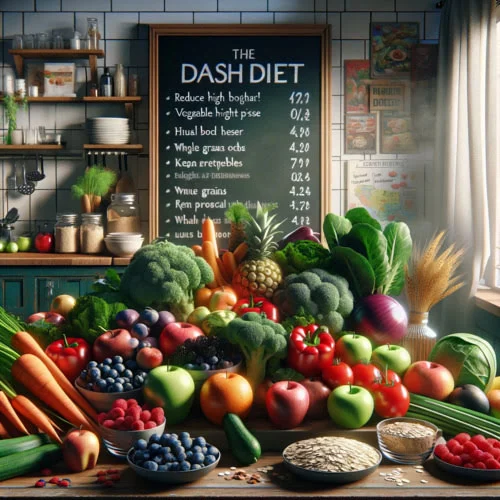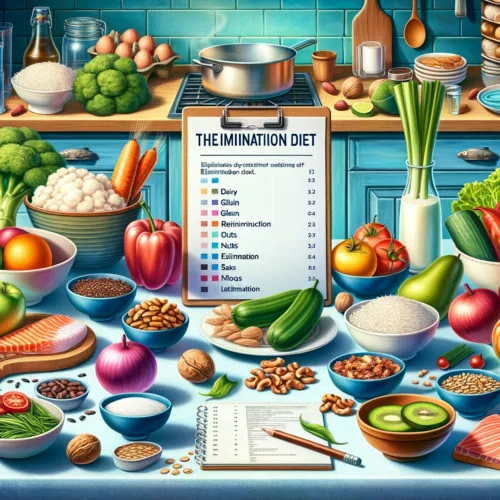The French diet is a food system based on the philosophy of enjoying food and moderation for comfortable weight loss. It has attracted attention for its approach to nutrition, where people enjoy a variety and quality foods while maintaining slimness and health. In this article, we will look at the basic principles of the French diet, its creator, target audience, foods allowed and not welcome, and provide a sample menu for each day of the week.
| Pros of the French diet | Minuses of the French diet |
|---|---|
| Moderate food consumption | Not always effective for weight loss. |
| Richness in wine and cheeses | May lead to increased alcohol and fat intake. |
| The pleasure of eating | Requires moderation and self-control. |
| Emphasis on fresh produce | Can be expensive due to the high price of some ingredients. |
| Maintaining a culture of dining and social gatherings | May not be suitable for people with restrictions on certain foods. |
| The teaching of flavors | Requires more active participation in cooking and thoughtful food choices. |
Who invented the French diet?
The French diet does not have a specific creator, as it is more of a way of life and cultural heritage of French cuisine. The French are known for their moderate and conscious attitude towards food, appreciating the quality of food and enjoying food. It is these principles that have become the foundation of the French diet.
For whom the French diet is suitable and its main benefits
The French diet is suitable for people who are looking to lose weight or who want to maintain a healthy weight while enjoying a varied and tasty diet. It can be useful for those who seek to eat in moderation, improve their lifestyle and maintain good health.
The benefits of the French diet are.
1. Varied and delicious meals: this approach to nutrition allows you to enjoy a variety of foods including fresh fruits and vegetables, fish, meats, cheeses, olive oil and others.
2. Moderation in consumption: The French diet will teach you to listen to your body and eat in moderation, avoiding overeating.

Allowed foods in the French diet
The French diet focuses on quality foods that are rich in nutrients. The menu of allowed foods includes:
1. Fresh fruits and vegetables: Apples, pears, strawberries, raspberries, spinach, arugula, tomatoes, cucumbers and other seasonal fruits and vegetables.
2. Fish and seafood: Salmon, cod, tuna, mussels, shrimp and other fish and seafood rich in omega-3 fatty acids.
3. meat: Chicken, turkey, beef, pork and lamb in moderate amounts.
4. Cheese: Camembert, Roquefort, Goat-cheese, Parmesan and other soft and hard cheeses, preferably low-fat varieties.
5. Olive Oil: Use olive oil as your main source of fat.
6. Cereals and baked goods: Wheat bread, whole grain rice, quinoa, oatmeal and other cereals.
Unwelcome foods in the French diet
While this nutritional system allows you to enjoy a variety of foods, there are also some foods that are recommended to eat in moderation or remove them from your menu altogether for successful weight loss.
1. Sweets and confectionery: Chocolate bars, cakes, cookies and other sweets should be limited.
2. High-calorie drinks: Carbonated drinks, juices with added sugar and sugary cocktails.
3. Fast food and packaged foods: Chips, hamburgers, pizza and other prepared foods rich in saturated fats and added preservatives.

Menu for each day of the week
Monday
– Breakfast: Omelet with vegetables and herbs, served with half an avocado.
– Snack: Greek yogurt with berries and nuts.
– Lunch: Nicoise salad with tuna, greens, tomatoes and olive oil.
– Snack: A slice of camembert and walnuts.
– Dinner: Steamed trout with parsley and lemon, served with vegetable gratin.
Tuesday
– Breakfast: Avocado and tomato toast sprinkled with sea salt and pepper.
– Snack: Cereal bar with nuts.
– Lunch: Grilled chicken breast with vegetable ratatouille.
– Snack: Sweet peach.
– Dinner: Risotto with mushrooms and parmesan.
Wednesday
– Breakfast: Oatmeal with berries, honey and chopped nuts.
– Snack: Banana.
– Lunch: Beef steak with spinach and mushroom sauce.
– Snack: Almond Nuts.
– Dinner: Chicken in cream sauce with green peas and carrots.
Thursday
– Breakfast: French toast with strawberries and nonfat yogurt.
– Snack: Mixed fresh vegetables with hummus.
– Lunch: Grilled seafood (calamari, shrimp) with olive oil and lemon juice.
– Snack: Apple.
– Dinner: Steamed salmon with lemon and spinach.
Friday
– Breakfast: Whole grain cereal with berries and almond milk.
– Snack: Carrot sticks with guacamole.
– Lunch: Chicken cutlets with vegetable salad.
– Snack: Greek yogurt with honey and nuts.
– Dinner: Grilled tuna with roasted vegetables.
Saturday
– Breakfast: Croissant with marmalade and fresh fruit.
– Snack: A roll with cheese and vegetables.
– Lunch: Salad with chicken breast, blue cheese, walnuts and raspberry dressing.
– Snack: Mini cheesecakes with yogurt.
– Dinner: Sea fish (salmon, cod) in a papilote with vegetables.
Sunday
– Breakfast: Omelet with spinach, tomatoes and cheese.
– Snack: Cereal bar with nuts.
– Lunch: Veal in savory sauce with vegetables on the side.
– Snack: Fruit salad with mint.
– Dinner: Ratatouille with turkey chunks.
Pros and cons of the French diet
The French diet is a popular approach to eating that emphasizes quality foods and moderation. Here are some pros and cons of this diet:
French diet – pros
1. Varied and tasty food: The French diet offers a wide variety of foods and recipes, allowing you to enjoy varied and tasty food.
2. Moderate Consumption: The diet does not seek to restrict you from eating, but rather to teach you how to approach food and moderate portion control.
3. Nutrient rich: The nutritious diet is based on fresh vegetables, fruits, fish and olive oil, which provides the body with essential nutrients.
4. Opportunity to enjoy food: French culture welcomes the pleasure of food, so not only the food is important, but also the atmosphere and the pleasure of the eating process.
French diet – cons
1. Restriction in certain foods: Some people may find it difficult to follow a diet because of restrictions on sweets, high-calorie drinks, and fast food.
2. Not suitable for everyone: The French diet may not be recommended for people with certain medical conditions or special dietary requirements.
3. Lack of a strict plan: Some people may lack a clear plan or structure in the French diet, which can make it difficult to stick to it over the long term.






Results
Overall, the French diet offers a healthy and moderate approach to eating, allowing you to enjoy a variety of foods and enjoy eating. However, as with any diet, it is important to keep your individual needs in mind and consult with your doctor or dietitian before starting any new diet and creating your 7 or 14 day diet menu.
If this food regimen sounds appealing to you, you can use it as a guide to create a healthy and varied diet. It is also important to keep an eye on the quality of food, preferring fresh and natural ingredients.
Remember, a healthy diet is not just a diet, but a lifestyle. Regular physical activity and a balanced diet are key components of maintaining your health and achieving your desired fitness.
Do not forget moderation and listen to your body. If you experience any negative effects or difficulties, do not hesitate to seek help and guidance from a professional.
In summary, the French diet offers an interesting approach to nutrition based on quality foods and moderation. It can be beneficial for those seeking a varied and healthy diet. However, as with any diet, it is important to consider your individual needs and consult with a professional before making changes to your lifestyle.
Frequent questions
The basic principle of the French diet is to eat moderate and varied foods, enjoy every meal and pay attention to the quality of the food.
The French diet includes fresh vegetables, meats, fish, cheeses, olive oil, wine and fresh fruit. It also includes baguette and desserts, but in moderation.
The French diet can help you maintain a healthy weight, improve skin quality, reduce your risk of cardiovascular disease and enjoy meals without feeling hungry.
Yes, the French diet can be followed anywhere. The main important thing is to choose quality foods, stick to moderate portions and appreciate food as part of culture and enjoyment.
The French diet usually includes three main meals (breakfast, lunch and dinner) with the possibility of snacking. The main thing is that meals should be moderate and filling.
The French diet is also related to lifestyle, including active movement (e.g., walking), enjoying meals with company, and moderate alcohol consumption, including red wine.
Recommendations include choosing fresh and natural foods, preparing home-cooked meals, paying attention to portion size, and savoring every bite. It is also important to learn to listen to satiety and hunger signals from your body.













